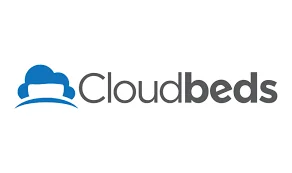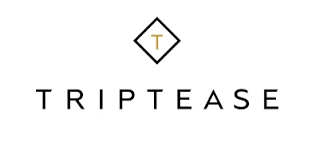في العصر الرقمي الذي نعيشه اليوم، يُعد الموقع الإلكتروني للفندق أكثر من مجرد كتيب على الإنترنت - إنه حجر الزاوية في استراتيجية التسويق الخاصة بك وبوابة لجذب نزلاء جدد. مع تزايد اعتماد المسافرين على الإنترنت لتخطيط وحجز إقامتهم وحجزها، من الضروري تحسين موقعك الإلكتروني للفندق ليبرز في سوق تنافسية. في هذه المقالة، سنستكشف كل شيء بدءاً من تصميم الموقع الإلكتروني وتحسين محركات البحث إلى تكامل وسائل التواصل الاجتماعي والتسويق عبر البريد الإلكتروني، مما يضمن أن موقعك الإلكتروني لا يجذب الزوار فحسب، بل يحولهم أيضاً إلى نزلاء مخلصين.

ما هو تسويق المواقع الإلكترونية للفنادق؟
تسويق موقع الفندق الإلكتروني هو عملية الترويج للموقع الإلكتروني للفندق وتحسينه لجذب النزلاء وزيادة الحجوزات المباشرة. في عالم اليوم الرقمي، يُعد التواجد القوي على الإنترنت أمراً ضرورياً للبقاء في المنافسة. يُعد الموقع الإلكتروني للفندق بمثابة نقطة الاتصال الأولى للعديد من النزلاء المحتملين، مما يجعل من الضروري التركيز على تجربة المستخدم والتصميم وتحسين محركات البحث وتسويق المحتوى وتحسين التحويل.
الهدف الرئيسي هو تحويل زوار الموقع الإلكتروني إلى حجوزات مؤكدة. ويمكن تحقيق ذلك من خلال تقديم موقع يسهل التنقل فيه بمحتوى مقنع ودعوات واضحة لاتخاذ إجراء. كما أن تحسين محركات البحث (SEO) أمر حيوي أيضاً، مما يضمن احتلال الموقع مرتبة عالية في نتائج البحث، مما يجعله مرئياً للمسافرين الذين يبحثون عن أماكن إقامة في المنطقة. بالإضافة إلى ذلك، يساعد دمج محرك الحجز السلس على زيادة التحويلات ويشجع النزلاء على الحجز مباشرة، مما يوفر رسوم العمولة.
باختصار، يجمع تسويق الموقع الإلكتروني للفنادق بين التصميم، وتحسين محركات البحث، والوظائف لتعزيز تجربة المستخدم وزيادة الحجوزات.
لماذا التسويق أمر بالغ الأهمية للفنادق
التسويق ضروري للفنادق في صناعة السفر التنافسية اليوم. فمع تزايد عدد المسافرين الذين يستخدمون الإنترنت للبحث عن أماكن الإقامة وحجزها، يضمن التسويق الفعّال تميّز الفندق. وبدون ذلك، تخاطر الفنادق بأن يطغى عليها المنافسون الأكثر استباقية.
لا يقتصر التسويق الفندقي على ملء الغرف فحسب، بل يجذب النزلاء المناسبين لتحقيق النمو والربحية على المدى الطويل. فهو يبني هوية قوية للعلامة التجارية، ويعزز ولاء العملاء، ويحفز تكرار الأعمال. بالإضافة إلى ذلك، يساعد التسويق الفنادق على التكيف مع التغييرات التي تطرأ على الصناعة وتفضيلات المسافرين المتطورة، مما يضمن تلبية احتياجات المستهلكين العصريين.
القائمة المختصرة لوكالات التسويق عبر الإنترنت للفنادق
كمسوق فندقي، قد يكون من الصعب إدارة جميع جوانب التسويق عبر الإنترنت بمفردك. لتبسيط جهودك وتحسين وجودك على الإنترنت، إليك 5 من أفضل وكالات التسويق الفندقي التي يمكن أن تكون بمثابة شركاء موثوق بهم في تعزيز استراتيجية التسويق الرقمي الخاصة بك:

1. نوبتيما
نحن في نوبتيما هي وكالة التسويق الرقمي التي يمكنها الارتقاء بتسويق موقعك الإلكتروني إلى المستوى التالي. من خلال تخصصنا في مساعدة الشركات التي يقودها مؤسسو الشركات على التوسع، نقدم استراتيجيات مصممة خصيصاً وفعالة من حيث التكلفة تحقق نتائج مهمة. تمتد خبرتنا لتشمل تحسين محركات البحث، وإنشاء المحتوى، وبناء الروابط، والإعلانات المدفوعة، وغير ذلك، مما يضمن تحسين كل جانب من جوانب موقعك الإلكتروني للفندق لتحقيق النجاح.
يعمل فريقنا من الخبراء الداخليين لدينا كامتداد لنشاطك التجاري، مع التركيز على زيادة عدد الزيارات العضوية وتعزيز التحويلات. صُمِّمت خدماتنا المتكاملة لتحسين محرّكات البحث لزيادة تصنيفات فندقك على جوجل، بينما تعمل استراتيجيات المحتوى لدينا على جذب الزائرين وتشجيعهم على الحجز مباشرةً من خلال موقعك الإلكتروني. وبفضل سجلنا الحافل، بما في ذلك إنفاق أكثر من $55 مليون دولار على وسائل الإعلام وعوائد عالية باستمرار، يضمن نهجنا نمواً مستداماً طويل الأجل لحضور فندقك على الإنترنت.
من خلال شراكتك معنا، فأنت لا تستثمر في خدمة لمرة واحدة فقط، بل في استراتيجية تسويق رقمي شاملة تتطور مع أعمالك. سواء من خلال تحسين مُحسّنات محرّكات البحث أو إعلانات جوجل أو إنشاء المحتوى، نساعد فندقك على التميز في المشهد الرقمي التنافسي وتحقيق نتائج قابلة للقياس. هل أنت مستعد لتوسيع نطاق جهود التسويق الرقمي لفندقك؟ نحن الشريك الذي تحتاج إليه.

2. السحابة السحابية
تشتهر Cloudbeds بقدرتها على زيادة إيرادات الفنادق من خلال توفير استراتيجيات تسويق رقمية مخصصة تتماشى مع أهداف عملك. تشتهر Cloudbeds بدمج برامج إدارة الفنادق والتسويق، وتستخدم Cloudbeds استراتيجيات تعتمد على البيانات لاستهداف الجمهور المناسب، وتعزيز الحجوزات المباشرة، وتبسيط العمليات عبر الإنترنت. يساعد نهجهم المبتكر الفنادق على إدارة التوزيع والتسعير والتسويق عبر الإنترنت في منصة مركزية واحدة، مما يسهّل جذب النزلاء وزيادة الإيرادات.

3. تريبتيس
تتفوق شركة Triptease في إشراك النزلاء المحتملين من خلال حملات تسويقية مخصصة. وهي متخصصة في إنشاء استراتيجيات الحجز المباشر واستخدام البيانات السلوكية لاستهداف النزلاء في كل مرحلة من مراحل عملية اتخاذ القرار. تُمكِّن منصة Triptease أصحاب الفنادق من التفاعل مع النزلاء من خلال تقديم تجارب مُخصَّصة وأسعار في الوقت الفعلي، مما يشجع الزوار في النهاية على الحجز مباشرةً من خلال الموقع الإلكتروني للفندق. وبفضل Triptease، يمكن للفنادق تحويل المزيد من الزائرين إلى حاجزين مع الحفاظ على تكامل العلامة التجارية.

4. سوجرن
تتميز Sojern بخبرتها في تحسين استراتيجيات الإعلانات متعددة القنوات. تتخصص هذه الوكالة في الجمع بين إعلانات البحث والتواصل الاجتماعي والعرض والفيديو لمساعدة الفنادق في الوصول إلى المسافرين المناسبين في الوقت المناسب. تستخدم Sojern البيانات الخاصة والتقنية التنبؤية لاستهداف النزلاء عبر مختلف المنصات الرقمية، مما يضمن مشاهدة إعلاناتك من قِبل الجماهير عالية النية. يساعد نهجهم الاستراتيجي على زيادة الرؤية والمشاركة والحجوزات في نهاية المطاف، مما يجعلهم خياراً رائعاً للفنادق التي تبحث عن حلول إعلانية شاملة عبر الإنترنت.

5. SiteMinder
SiteMinder هي منصة رائدة تعزز ظهور الفنادق عبر قنوات متعددة. من خلال التركيز القوي على التوزيع السلس، تتكامل SiteMinder مع أكثر من 400 من وكالات السفر عبر الإنترنت وأنظمة نظم التوزيع العالمية ومديري القنوات لضمان ظهور قوائم فنادقك أينما يبحث المسافرون. بالإضافة إلى ذلك، يوفر SiteMinder أدوات لإدارة الأسعار والتوافر والحجوزات عبر مختلف المنصات، مما يسهل على الفنادق تحسين جهودها التسويقية وزيادة الحجوزات وزيادة الإيرادات من القنوات المباشرة وقنوات الطرف الثالث.

6. التقارب الصافي
Net Affinity هي وكالة تسويق رقمي تساعد الفنادق على تحسين تواجدها على الإنترنت من خلال استراتيجيات مصممة خصيصاً. بدءاً من تحسين محركات البحث وإنشاء المحتوى إلى الإعلانات المدفوعة، تركز Net Affinity على تزويد الفنادق بحلول تسويقية مخصصة لتعزيز تصنيفات محركات البحث وزيادة عدد الزيارات إلى مواقعها الإلكترونية. كما تضمن خبرتهم في تطوير مواقع إلكترونية سهلة الاستخدام مع محركات حجز متكاملة سهولة حجز النزلاء لإقامتهم، مما يزيد من معدلات التحويل والإشغال الكلي. يضمن نهج Net Affinity القائم على البيانات تحسين كل جهد تسويقي لتحقيق أقصى قدر من التأثير، مما يساعد فندقك على تحقيق نمو مستدام.
تجلب هذه الوكالات مهارات وخبرات متنوعة إلى الطاولة، مما يسمح لك باختيار الشريك الأفضل بناءً على احتياجات وأهداف فندقك الفريدة.
كيفية إنشاء استراتيجية تسويق موقع إلكتروني فندقي ناجح
تتضمن استراتيجية التسويق الناجحة للموقع الإلكتروني للفندق عدة عناصر رئيسية لجذب زوار الموقع الإلكتروني وإشراكهم وتحويلهم إلى نزلاء يدفعون مقابل الإقامة. تبدأ هذه العملية بفهم عميق لجمهورك المستهدف، وهوية قوية لعلامتك التجارية، وخطة تستخدم تحسين محركات البحث، وإنشاء المحتوى، والتكنولوجيا لزيادة حضور الفندق على الإنترنت.
إليك دليل مفصل خطوة بخطوة لإنشاء استراتيجية تسويق فعالة للمواقع الإلكترونية للفنادق:
1. حدد أهدافك
أساس استراتيجية التسويق الناجحة للمواقع الإلكترونية للفنادق هو وضع أهداف واضحة وقابلة للقياس. فبدون أهداف محددة، يستحيل قياس النجاح أو تحديد مكان تخصيص الموارد بفعالية. ابدأ بطرح الأسئلة الرئيسية: ما الذي نريد تحقيقه؟ هل نريد زيادة الحجوزات المباشرة، أو تعزيز الوعي بالعلامة التجارية، أو تحسين تصنيفات البحث، أو توسيع قاعدة عملائنا في فئة سكانية معينة؟ إن تحديد أهداف مثل زيادة الحجوزات المباشرة بمقدار 20% أو زيادة عدد الزيارات إلى موقعك الإلكتروني بمقدار 30% في غضون ستة أشهر يمنحك توجهاً واضحاً.
تساعد الأهداف أيضًا في تحديد أولويات جهودك التسويقية. على سبيل المثال، إذا كانت زيادة الحجوزات هي محور تركيزك الرئيسي، فقد تعطي الأولوية لتحسين محركات البحث وتحسين معدل التحويل (CRO). أما إذا كان بناء الوعي بالعلامة التجارية هو هدفك الأساسي، فقد تكون الأولوية للمشاركة على وسائل التواصل الاجتماعي وإنشاء المحتوى. يسمح لك وضع أهداف واضحة منذ البداية بقياس التقدم الذي تحرزه وتعديل الاستراتيجيات لضمان توافق كل قرار تسويقي مع أهداف عملك الأوسع نطاقًا.
2. فهم جمهورك
إن معرفة جمهورك المستهدف أمر بالغ الأهمية لصياغة استراتيجية تسويق للموقع الإلكتروني للفندق يكون لها صدى. سيسمح لك فهم من هم نزلاؤك وما يقدّرونه وكيف يتخذون قراراتهم بتخصيص محتوى موقعك الإلكتروني ورسائله وتجربة المستخدم.
ابدأ بإنشاء شخصيات الضيوف، وهي ملفات شخصية مفصلة لعملائك المثاليين. يجب أن تتضمن هذه الشخصيات معلومات ديموغرافية رئيسية مثل العمر والجنس والدخل والموقع وتفضيلات السفر. على سبيل المثال، من المرجح أن يجذب المنتجع الفاخر على الأرجح المهنيين ذوي الدخل المرتفع الذين يقدرون الخصوصية والراحة، في حين أن الفندق الاقتصادي قد يستهدف العائلات أو المسافرين بمفردهم الذين يبحثون عن القدرة على تحمل التكاليف.
يجب عليك أيضاً التفكير في رحلة العميل. ما الذي يدفع النزلاء المحتملين لبدء البحث عن فندق؟ ما هي العوامل التي تؤثر على عملية اتخاذ القرار؟ من خلال الإجابة على هذه الأسئلة، يمكنك إنشاء محتوى وعروض أكثر ملاءمة على موقعك الإلكتروني تلبي احتياجاتهم في كل مرحلة من مراحل عملية اتخاذ القرار، سواء كانوا يبحثون فقط أو مستعدين للحجز.
3. التركيز على تحسين محركات البحث
يُعد تحسين محركات البحث (SEO) أحد أهم جوانب تسويق الموقع الإلكتروني للفندق. يضمن تحسين محركات البحث الفعال للموقع الإلكتروني لفندقك الحصول على مرتبة عالية على صفحات نتائج محرك البحث (SERPs)، مما يؤدي إلى زيادة عدد الزيارات العضوية وزيادة الظهور. لإنشاء استراتيجية تحسين محركات البحث الناجحة، من المهم التركيز على عدة عناصر رئيسية:
- البحث عن الكلمات المفتاحية: فهم المصطلحات والعبارات المحددة التي يبحث عنها النزلاء المحتملون. وهذا يشمل الكلمات المفتاحية المستندة إلى الموقع، مثل "فندق فاخر في نيويورك"، أو الكلمات المفتاحية المستندة إلى الخدمة مثل "فندق صديق للحيوانات الأليفة بالقرب من الشاطئ". استخدم أدوات مثل Google Keyword Planner أو SEMrush لتحديد الكلمات الرئيسية ذات الحجم الكبير والمنافسة المنخفضة التي ستجذب حركة المرور المستهدفة.
- التحسين على الصفحة: تأكد من تحسين العناوين الوصفية لموقعك الإلكتروني، والأوصاف، وعلامات الترويسة، وبنية عنوان URL بالكلمات الرئيسية ذات الصلة. تساعد هذه العناصر محركات البحث على فهم المحتوى الخاص بك وترتيب صفحاتك بشكل مناسب. على سبيل المثال، يمكن أن يؤدي استخدام كلمات مفتاحية محددة في عنوان التعريف والوصف إلى زيادة معدلات النقر إلى الظهور (CTR) من خلال جعل قوائمك تبرز في نتائج البحث.
- إنشاء المحتوى: تكافئ محركات البحث المواقع الإلكترونية التي تقدم محتوى قيماً وذا صلة بالموضوع. من خلال نشر المدونات والأدلة والمقالات الخاصة بالموقع التي تجيب على الأسئلة الشائعة أو تقدم معلومات مفيدة عن السفر، يمكنك تحسين تصنيفات تحسين محركات البحث. بالإضافة إلى ذلك، يمكن أن يساعد دمج الكلمات المفتاحية ذات الذيل الطويل في المحتوى الخاص بك في جذب المزيد من استعلامات البحث المحددة وزيادة عدد الزيارات من المستخدمين الذين يبحثون عن أماكن إقامة متخصصة.
4. تصميم موقع إلكتروني جذاب وسهل الاستخدام
موقعك الإلكتروني هو واجهة المتجر الرقمي لفندقك، ويلعب تصميمه دوراً كبيراً في جذب النزلاء والاحتفاظ بهم. لا يوفر موقع الويب المصمم جيدًا تجربة جذابة بصريًا فحسب، بل يخلق أيضًا رحلة سلسة للمستخدم من الاكتشاف إلى الحجز. إليك ما يجب مراعاته عند تصميم موقع إلكتروني للفندق:
- تحسين الأجهزة المحمولة: نظرًا لأن نسبة كبيرة من حجوزات الفنادق تتم على الأجهزة المحمولة، يجب أن يكون موقعك الإلكتروني متجاوبًا تمامًا مع الأجهزة المحمولة. تأكد من أن التصميم والنصوص والصور تتناسب مع الشاشات الصغيرة، وأن الأزرار ونماذج الحجز سهلة الاستخدام على الهاتف المحمول.
- سهولة التنقل السهل: يجب أن يكون الضيوف قادرين على العثور بسرعة على المعلومات التي يحتاجون إليها، سواء كانت تفاصيل حول الغرف أو وسائل الراحة أو سياسات الحجز. يساعد التنقل المبسط على تحسين تجربة المستخدم وتقليل معدلات الارتداد.
- تصميم يركز على التحويل: يجب تحسين تصميم الموقع الإلكتروني من أجل التحويل. ويتضمن ذلك عبارات واضحة وبارزة تحث على اتخاذ إجراء (CTAs)، مثل "احجز الآن" أو "تحقق من التوافر"، موضوعة في مواقع استراتيجية. بالإضافة إلى ذلك، تأكد من أن محرك الحجز سهل الاستخدام وأن عملية الدفع بسيطة وآمنة.
- سرعة تحميل الصفحة: يمكن أن يؤدي بطء الموقع الإلكتروني إلى إبعاد الضيوف المحتملين. يمكن أن تساعدك أداة PageSpeed Insights من Google في تحديد المشكلات التي قد تؤدي إلى إبطاء موقعك وإصلاحها، مثل الصور الكبيرة أو التعليمات البرمجية غير الفعالة.
5. إنشاء محتوى مقنع
يلعب التسويق بالمحتوى دوراً حيوياً في زيادة عدد الزيارات إلى موقع فندقك الإلكتروني وإشراك الزوار. لا يعزز المحتوى عالي الجودة من تحسين محركات البحث فحسب، بل يساعد أيضًا في ترسيخ مكانة فندقك كمصدر موثوق به في صناعة السفر. إليك بعض استراتيجيات المحتوى التي يجب وضعها في الاعتبار:
- التدوين: يمكن أن تغطي منشورات المدونة المنتظمة موضوعات مثل نصائح السفر أو مناطق الجذب المحلية أو الأحداث الموسمية في منطقتك. لا يوفر ذلك معلومات قيمة لزوارك فحسب، بل يساعد أيضًا في تحسين محركات البحث من خلال استهداف مجموعة متنوعة من الكلمات الرئيسية.
- مقاطع الفيديو: يمكن أن تجذب مقاطع الفيديو التي تعرض منشأتك ووسائل الراحة وتجارب النزلاء المستخدمين أكثر من النصوص وحدها. ضع في اعتبارك إنشاء جولات افتراضية لغرفك، أو تجربة "يوم في الحياة" في فندقك، أو تسليط الضوء على مناطق الجذب المحلية القريبة.
- أدلة الوجهات: إن تقديم أدلة مفصلة عن موقع فندقك - مثل أفضل المطاعم أو أماكن مشاهدة المعالم السياحية أو الأنشطة الخارجية - سيجعل موقعك أكثر جاذبية للمسافرين الذين يبحثون عن نصائح شاملة للسفر. يمكن أن تساعد هذه الأدلة أيضًا في تعزيز تحسين محركات البحث من خلال استهداف مصطلحات البحث مثل "أشياء يمكن القيام بها في [مدينتك]".
- العروض الترويجية الموسمية: قم بتسليط الضوء على العروض الموسمية أو الباقات أو الأحداث على موقعك الإلكتروني لإضفاء طابع الاستعجال. يمكن أن تشجع العروض محدودة الوقت أو الصفقات الخاصة الزوار على إجراء الحجوزات بشكل أسرع.
6. دمج الدليل الاجتماعي
يُعد الدليل الاجتماعي أداة قوية للغاية لتحويل زوار الموقع الإلكتروني إلى ضيوف. تساعد المراجعات والشهادات الإيجابية من الضيوف السابقين على بناء الثقة والتحقق من جودة خدماتك. إليك كيفية الاستفادة من الدليل الاجتماعي بفعالية:
- تقييمات الضيوف: اعرض شهادات النزلاء السابقين على صفحتك الرئيسية أو صفحة التقييمات المخصصة. يمكنك أيضاً تضمين تقييمات مجمعة من منصات مثل TripAdvisor أو Google Reviews أو Booking.com.
- دراسات الحالة: إذا استضاف فندقك ضيوفاً أو فعاليات بارزة، شارك قصص النجاح هذه كدراسات حالة. يمكن أن يشجع تسليط الضوء على التجارب الفريدة من نوعها الزوار على تخيل أنفسهم وهم يقيمون معك.
- المحتوى الذي ينشئه المستخدم: شجّع النزلاء على مشاركة الصور والتجارب على وسائل التواصل الاجتماعي ووضع علامة على فندقك. يمكنك إعادة توظيف هذا المحتوى على موقعك الإلكتروني لإظهار تجارب حقيقية وأصيلة.
7. الاستفادة من التسويق عبر البريد الإلكتروني
يُعد التسويق عبر البريد الإلكتروني وسيلة فعّالة من حيث التكلفة للبقاء على اتصال مع النزلاء المحتملين والسابقين. من خلال جمع عناوين البريد الإلكتروني من خلال الحجوزات أو الاشتراك في الموقع الإلكتروني أو العروض الترويجية، يمكنك إنشاء حملات بريد إلكتروني مستهدفة لزيادة الحجوزات وتعزيز ولاء العملاء.
- رسائل بريد إلكتروني مخصصة: إرسال عروض وعروض ترويجية مخصصة بناءً على سلوكيات أو تفضيلات الحجز السابقة. على سبيل المثال، يمكن أن يؤدي تقديم خصم على الإقامة التالية للنزيل أو التوصية بأنشطة ذات صلة بزيارته السابقة إلى جعل رسائل البريد الإلكتروني أكثر ملاءمة وجاذبية.
- التقسيم: قسّم قائمة بريدك الإلكتروني بناءً على عوامل مختلفة مثل سجل الحجز أو تفضيلات النزلاء أو التركيبة السكانية. يمكن أن يؤدي تخصيص الرسائل لكل شريحة إلى زيادة المشاركة والتحويلات.
- الحملات التلقائية: قم بإعداد حملات بريد إلكتروني تلقائية لإشراك النزلاء في جميع مراحل رحلتهم - بدءاً من رسائل البريد الإلكتروني الترحيبية والتذكيرات قبل الوصول إلى رسائل الشكر بعد المغادرة والعروض للإقامات المستقبلية.
8. مراقبة الأداء وتحليله
التحسين المستمر هو مفتاح تحقيق النجاح على المدى الطويل. استخدم أدوات التحليلات، مثل Google Analytics، لتتبع أداء جهودك التسويقية لموقعك الإلكتروني. ركّز على مؤشرات الأداء الرئيسية (KPIs) مثل عدد زيارات الموقع الإلكتروني، ومعدلات الارتداد، ومعدلات التحويل، ومتوسط مدة الجلسة.
- اختبار أ/ب: اختبر إصدارات مختلفة من الصفحات المقصودة لموقعك الإلكتروني، وعبارات الحث على اتخاذ إجراء، والمحتوى لتحديد أيهما أفضل أداءً. يتيح لك اختبار A/B تحسين أساليبك التسويقية بناءً على بيانات حقيقية.
- اضبط استراتيجيتك: قم بمراجعة بياناتك بانتظام لمعرفة ما يعمل وما لا يعمل. إذا كان معدل الارتداد مرتفعًا على صفحات معينة، فقد يشير ذلك إلى الحاجة إلى تحسين المحتوى أو تحسينات في التصميم. استخدم هذه الرؤى لتحسين استراتيجيتك وتحسين الأداء العام.
باتباع هذه الخطوات، يمكن للفنادق إنشاء استراتيجية تسويق شاملة وفعّالة للموقع الإلكتروني لا تجذب المزيد من الزائرين فحسب، بل تحوّلهم إلى عملاء مخلصين. يلعب كل جانب - بدءًا من تحسين محركات البحث وإنشاء المحتوى إلى الإثبات الاجتماعي والتسويق عبر البريد الإلكتروني - دورًا حاسمًا في زيادة الحجوزات وتحقيق النجاح على المدى الطويل.
تكتيكات تسويق المواقع الإلكترونية للفنادق
يُعد التسويق عبر الموقع الإلكتروني للفندق أمراً حيوياً لزيادة حضور الفندق على الإنترنت وزيادة الحجوزات المباشرة. تتضمن الاستراتيجية الناجحة استخدام قنوات متعددة لجذب النزلاء وتعزيز الظهور وتحسين التحويلات.
يضمن تحسين محركات البحث (SEO) أن يحتل فندقك مرتبة جيدة في نتائج البحث. من خلال تحسين المحتوى باستخدام الكلمات الرئيسية المحلية وتحسين بنية موقعك الإلكتروني، فإنك تسهّل على المسافرين العثور على فندقك. يُعد تحسين محركات البحث المحلية أمرًا أساسيًا، خاصةً عند استهداف النزلاء الذين يبحثون عن أماكن إقامة في مناطق محددة.
تساعد الإعلانات المدفوعة، بما في ذلك إعلانات Google وإعلانات فيسبوك، على جذب الزيارات المستهدفة إلى موقعك الإلكتروني. تسمح لك هذه المنصات بالوصول إلى فئات سكانية ومواقع محددة، مما يزيد من الظهور ويشجع على الحجوزات.
يتيح لك التسويق عبر وسائل التواصل الاجتماعي عرض فندقك من خلال محتوى جذاب. تُعد منصات مثل إنستجرام وفيسبوك رائعة لمشاركة العروض الترويجية وتجارب النزلاء والصور المرئية لمنشأتك. يمكن للشراكات مع المؤثرين والإعلانات المدفوعة أن توسع نطاق وصولك.
إن إنشاء محتوى قيّم، مثل المدونات وأدلة السفر ومقاطع الفيديو، لا يجذب الزائرين فحسب، بل يعزز أيضاً تحسين محركات البحث. من خلال تلبية احتياجات الضيوف وتسليط الضوء على مناطق الجذب المحلية، فإنك تشجع على تكرار الزيارات وتحسين تصنيفات البحث الخاصة بك.
يساعد التسويق عبر البريد الإلكتروني على تعزيز العلاقات مع النزلاء السابقين والمحتملين. تشجع العروض والعروض الترويجية المخصصة التي يتم إرسالها عبر البريد الإلكتروني على الحجوزات المباشرة وتبقي فندقك في صدارة اهتماماتك.
وأخيراً، فإن إدارة سمعتك على الإنترنت من خلال تقييمات النزلاء أمر ضروري لبناء الثقة. تساعد المراجعات الإيجابية على زيادة المصداقية وتحسين تحسين محركات البحث وجذب المزيد من الحجوزات.
من خلال الجمع بين هذه التكتيكات - تحسين محركات البحث، والإعلانات المدفوعة، ووسائل التواصل الاجتماعي، وتسويق المحتوى، وإدارة السمعة - يمكن لفندقك زيادة الظهور، وإشراك النزلاء، وزيادة الحجوزات المباشرة.
المؤثرون كجزء من التسويق عبر الإنترنت للفنادق
أصبح المؤثرون عنصراً أساسياً في التسويق عبر الإنترنت للفنادق، حيث يقدمون طريقة فريدة للتواصل مع النزلاء المحتملين وتوسيع نطاق ظهور العلامة التجارية. يتيح لك التعاون مع المؤثرين الذين يتوافقون مع العلامة التجارية لفندقك والجمهور المستهدف الاستفادة من مجتمع متفاعل وموثوق به للغاية. يمكن للمؤثرين إنشاء محتوى أصيل - سواء من خلال منشورات وسائل التواصل الاجتماعي أو المدونات أو مقاطع الفيديو - يسلط الضوء على وسائل الراحة والتجارب والمعالم السياحية المحلية في فندقك. وغالباً ما تبدو توصياتهم أكثر خصوصية وارتباطاً بالجمهور، مما يساعد على تعزيز الثقة بين متابعيهم.
تُعدّ شراكات المؤثرين فعّالة بشكل خاص لاستهداف فئات سكانية محددة، مثل المسافرين الباحثين عن الرفاهية أو الباحثين عن المغامرة أو العائلات، اعتماداً على مكانة المؤثر. من خلال مشاركة تجاربهم الخاصة في فندقك، يساعد المؤثرون في بناء دليل اجتماعي، مما يزيد من الاهتمام ويشجع النزلاء المحتملين على إجراء الحجوزات. لا يؤدي هذا النوع من التسويق إلى زيادة ظهور فندقك فحسب، بل يخلق أيضاً ضجة حول العروض الخاصة أو العروض الترويجية الموسمية أو الجوانب الفريدة من نوعها في منشأتك. عندما يتم التعاون مع المؤثرين بشكل استراتيجي، يمكن أن يعزز التعاون مع المؤثرين بشكل كبير كلاً من المشاركة والحجوزات المباشرة لفندقك.
أهم ثلاث نصائح للتسويق عبر الإنترنت للفنادق
في عالم التسويق الفندقي التنافسي في عالم التسويق الفندقي التنافسي، يُعد التميز عبر الإنترنت أمراً ضرورياً لجذب النزلاء والاحتفاظ بهم. ومع وجود العديد من الفنادق التي تتنافس على جذب الانتباه، فإن تنفيذ استراتيجيات التسويق الصحيحة يمكن أن يُحدث فرقاً كبيراً في ظهورك ومشاركتك وحجوزاتك في نهاية المطاف. إليك أهم ثلاث نصائح للتسويق عبر الإنترنت لمساعدة فندقك على النجاح:
تحسين موقعك الإلكتروني لمستخدمي الجوال
يتم إجراء جزء كبير من حجوزات الفنادق على الأجهزة المحمولة، مما يجعل من الضروري التأكد من أن موقعك الإلكتروني مُهيأ بالكامل للتصفح عبر الأجهزة المحمولة. يوفر الموقع الإلكتروني المتوافق مع الأجهزة المحمولة تجربة سلسة للنزلاء الذين يتصفحون ويحجزون أثناء التنقل. وهذا يعني سهولة التصفح، وسرعة التحميل، وعملية حجز بسيطة وبديهية. إذا لم يكن موقعك الإلكتروني مهيأ لتصفح الجوال، فإنك تخاطر بفقدان العملاء المحتملين الذين من المحتمل أن يتخلوا عن الموقع ويبحثوا عن خيارات أكثر سهولة في الاستخدام.
الاستفادة من وسائل التواصل الاجتماعي لبناء المشاركة والوعي بالعلامة التجارية
تُعد منصات وسائل التواصل الاجتماعي مثل إنستجرام وفيسبوك وتويتر أدوات قوية للفنادق للتفاعل مع النزلاء المحتملين وعرض عروضها الفريدة وبناء الوعي بالعلامة التجارية. من خلال نشر صور عالية الجودة، وشهادات النزلاء، والعروض الخاصة، ولمحات من وراء الكواليس، يمكنك إنشاء اتصال قوي مع جمهورك. يمكن أن يساعد استخدام الهاشتاجات ذات الصلة وتشغيل الحملات التفاعلية، مثل المسابقات أو الهبات، في زيادة مدى وصولك وتشجيع المحتوى الذي ينشئه المستخدمون والذي يبني الثقة والمصداقية.
استفد من مُحسّنات محرّكات البحث المحلية لجذب المسافرين القريبين منك
يُعد تحسين محركات البحث المحلية أمرًا حيويًا للفنادق التي تعتمد على جذب النزلاء من مواقع جغرافية محددة. حسِّن موقعك الإلكتروني والمحتوى الخاص بك باستخدام كلمات رئيسية محلية، مثل اسم المدينة أو الحي أو مناطق الجذب القريبة، لتحسين ظهورك في نتائج البحث المحلية. بالإضافة إلى ذلك، قم بالمطالبة بقائمة "نشاطي التجاري على Google" وتحسينها، حيث إنها تسمح لفندقك بالظهور في نتائج البحث المحلية وعلى خرائط Google. وهذا يعزز قدرتك على جذب المسافرين الذين يبحثون بنشاط عن أماكن إقامة بالقرب من وجهتهم.
من خلال تنفيذ أهم ثلاث نصائح للتسويق عبر الإنترنت، يمكن للفنادق زيادة ظهورها على الإنترنت، والتفاعل مع النزلاء المحتملين، وفي النهاية زيادة الحجوزات المباشرة. يُعد التركيز على تحسين استخدام الهاتف المحمول والتفاعل على وسائل التواصل الاجتماعي وتحسين محركات البحث المحلية عناصر أساسية في استراتيجية تسويق شاملة تساعد على زيادة عدد الزيارات وزيادة الإيرادات.
الخاتمة
يُعد تسويق الموقع الإلكتروني للفنادق نظاماً ديناميكياً ومتعدد الأوجه يتطلب جهداً وتكيُّفاً مستمرين. من خلال التركيز على إنشاء موقع إلكتروني سهل الاستخدام وجذاب بصرياً، وتحسينه لمحركات البحث، والمشاركة في تسويق محتوى قوي، والاستفادة من البيانات لتحسين الأداء باستمرار، يمكن لفندقك أن يعزز وجوده على الإنترنت بشكل كبير ويزيد من الحجوزات المباشرة.
تذكّر أن الهدف ليس فقط جذب الزائرين بل تحويلهم إلى نزلاء مخلصين. سيؤدي تنفيذ الاستراتيجيات التي تمت مناقشتها - بدءاً من التصميم الأول للجوال وتحسين محركات البحث إلى حملات البريد الإلكتروني المخصصة والتقنيات المتطورة مثل الجولات الافتراضية - إلى وضع فندقك في موقع النجاح في مشهد رقمي يتسم بالتنافسية المتزايدة.
مع تطور صناعة الضيافة، يجب أن تتطور جهودك التسويقية أيضاً. واكب الاتجاهات الناشئة، وحلل أداءك باستمرار، وكن على استعداد لتعديل استراتيجياتك. من خلال خطة تسويق شاملة ومرنة للموقع الإلكتروني للفندق، لن تلبي توقعات المسافرين البارعين في مجال التكنولوجيا اليوم فحسب، بل ستجعل منشأتك رائدة في هذا المجال.
استثمر الوقت والموارد اللازمة لإنشاء موقع إلكتروني عالي الأداء والحفاظ عليه. ففي نهاية المطاف، موقعك الإلكتروني هو أكثر من مجرد وجود رقمي - إنه قلب استراتيجيتك التسويقية والخطوة الأولى في بناء علاقات دائمة مع ضيوفك.
الأسئلة الشائعة
يشير تسويق الموقع الإلكتروني للفندق إلى الاستراتيجيات والتكتيكات المستخدمة للترويج لموقع الفندق الإلكتروني وتحسينه لجذب الزوار وتحويلهم إلى حجوزات مباشرة. ويشمل ذلك تحسين محركات البحث، وإنشاء المحتوى، وتحسين الموقع الإلكتروني للفندق، وتحسين الموقع الإلكتروني للفندق، وتحسين الموقع الإلكتروني للفندق عبر الهاتف المحمول، ودمج وسائل التواصل الاجتماعي، والإعلانات المدفوعة لتحسين ظهور الفندق على الإنترنت وزيادة الإيرادات.
يُعد تحسين محركات البحث أمرًا بالغ الأهمية لتسويق الموقع الإلكتروني للفندق لأنه يساعد فندقك على احتلال مرتبة أعلى في نتائج محرك البحث، مما يسهل على النزلاء المحتملين العثور على موقعك الإلكتروني. من خلال تحسين موقعك الإلكتروني للكلمات الرئيسية ذات الصلة وإنشاء محتوى قيّم، يمكنك زيادة عدد الزيارات العضوية وزيادة الحجوزات المباشرة، وتجاوز منصات الحجز المكلفة التابعة لجهات خارجية.
لزيادة الحجوزات المباشرة، احرص على أن يكون موقعك الإلكتروني سهل الاستخدام، ومُحسَّنًا للهواتف المحمولة، وسريعًا. تضمين عبارات واضحة تحث على اتخاذ إجراء، وتقديم خصومات حصرية للحجوزات المباشرة، ودمج محرك حجز سلس. بالإضافة إلى ذلك، ركِّز على المحتوى عالي الجودة، وتقييمات النزلاء الإيجابية، وتحسين محركات البحث لجذب المزيد من الزوار الذين من المحتمل أن يحجزوا معك مباشرةً.
تلعب وسائل التواصل الاجتماعي دوراً هاماً في تسويق المواقع الإلكترونية للفنادق من خلال تعزيز الوعي بالعلامة التجارية والتفاعل مع النزلاء المحتملين. من خلال نشر صور عالية الجودة وعروض ترويجية ونصائح حول الوجهة السياحية، يمكن للفنادق جذب جمهور أوسع. كما توفر منصات وسائل التواصل الاجتماعي مثل إنستجرام وفيسبوك فرصة ممتازة لبناء علاقات مع النزلاء وجذب الزوار إلى الموقع الإلكتروني للفندق.
نعم، يمكن أن يؤدي الاستثمار في الإعلانات المدفوعة مثل إعلانات جوجل وإعلانات فيسبوك إلى زيادة ظهور فندقك بشكل كبير. تستهدف الحملات الإعلانية المدفوعة جماهير محددة بناءً على نوايا البحث والتركيبة السكانية الخاصة بهم، مما يؤدي إلى زيادة عدد الزيارات المؤهلة إلى موقعك الإلكتروني. عند القيام بذلك بشكل استراتيجي، يمكن للإعلانات المدفوعة أن تكمل جهود تحسين محركات البحث وتسرّع الحجوزات خلال مواسم الذروة أو العروض الترويجية الخاصة.
تقدم Nuoptima حلولاً تسويقية رقمية مصممة خصيصاً للفنادق، وهي متخصصة في تحسين محركات البحث، وإنشاء المحتوى، والإعلانات المدفوعة، وبناء الروابط. يساعد فريقهم على تحسين الموقع الإلكتروني لفندقك من أجل الحصول على تصنيفات أعلى، وزيادة عدد الزيارات العضوية وتحسين التحويلات. من خلال الاستفادة من خبرة Nuoptima، يمكن لفندقك توسيع نطاق تواجده على الإنترنت وجذب المزيد من النزلاء، مما يؤدي في النهاية إلى زيادة الحجوزات المباشرة والإيرادات.




